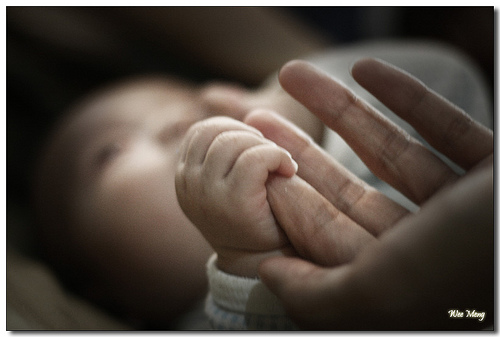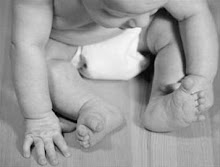
As mentioned earlier, play is a child's 'work'. It promotes learning, development, growth and health. Movement skills, thinking skills, language, social interaction and emotional development all happen best when children are actively involved in an activity - when they are having fun - when they are playing!
Babies
Young babies respond actively to people. They watch faces. listen to voices, smile and make sounds. Later they discover objects to shake, drop, suck, bang, roll and crawl after. Their play centres around the parents/primary caregivers; they watch what you do; listen to familiar songs and rhymes; enjoy tickling games; look at picture books with you; imitating sounds and words; clapping and waving bye-bye.
Toddlers
Toddlers become more interested in playing with 'things' - push/pull along toys, blocks, hammering toys, early puzzles, sand and water. They gradually become a little more secure - playing further away from you, but still with you in sight. They will enjoy talking about play but most toddlers do not share well.
Young Children
By 3 and 4 years, children enjoy pretending. With practice, they will learn to play socially - initially alongside others, sharing with others and gradually in cooperation with others to plan and make up all kinds of games. They will move confidently - enjoying challenges such as bikes, playgrounds and ball games.



